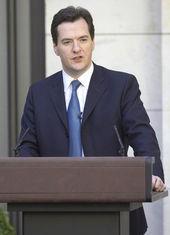
The Budget has sparked screaming headlines of “Gran Theft Auto” over the scrapping of pensioner tax breaks and an attack on George Osborne by Greggs for adding VAT to hot takeaway snacks but, for fresh produce, the big news may be investment in increasing exports and a rise in fuel duty.
Having flashed the obligatory smile outside Number 11, the chancellor announced pensioners would lose an average £83 from the removal of age-related income allowances, in what was seemingly immediately dubbed a ‘granny tax’.
Osborne also announced what the newspapers are calling a ‘samosa tax’ or ‘hot chicken tax’ that means, from October, supermarkets and other retailers that sell any hot food will be forced to pay 20 per cent in VAT, unless it is fresh bread.
In a statement, Greggs said: “We do not believe that our freshly baked savoury products should be subject to VAT and we will be making strong representation to the government regarding the proposed changes.”
For better or worse it seems Osborne hasn’t found any loopholes to close in the fresh produce industry, but the unveiling of a £200 million increase to the £1 billion Business Finance Partnership could be good news for many.
Under the scheme the government matches investments from the private sector to provide credit to medium-sized companies.
NFU president Peter Kendall said Osborne was right to focus on growth.
“I was pleased to see measures that could create a more competitive business environment in the UK,” he said.
“In particular, the chancellor’s ambition to increase UK exports over the next decade to £1 trillion should benefit farmers who are the backbone of a food and drink industry which constitutes our biggest manufacturing sector.”
Kendall is also pleased the chancellor said the National Planning Policy Framework (NPPF), due out next week, will contain a commitment to permitting sustainable development.
The NPPF and the review of the Habitats Directive could contribute to reducing the regulatory burden on farmers, “freeing them up to invest and making their businesses, and the industry as a whole, more competitive”, according to Kendall.
However, he said the Budget was a missed opportunity to introduce measures that might have helped farmers capitalise on the growing confidence that is evident in the industry.
“Changes to the tax treatment of farm reservoirs, for example, are crucial at a time when farmers need to prepare for scarcer water resources in some parts of the country, while a reversal of the decision to reduce the Annual Investment Allowance on plant and machinery to £25,000 would encourage farmers to invest in the sort of costly machinery needed on modern, productive farms.
“However, these are just a couple of the relatively small measures that seem to have been ignored by the Treasury. In particular with regard to capital allowances, the chancellor’s focus on giving Britain the lowest corporation tax rate in the G20 ignores those businesses which are not incorporated. This includes a majority of farms - and it is they who will be discouraged from investing by the reduction in the AIA.”
Osborne also decided not to stop the 3p rise in fuel duty planned for August in a move Kendall said would displease farmers because rural areas tend to suffer from higher fuel prices while the price of fuel used on-farm continues to rise dramatically.
The chancellor also confirmed plans to allow supermarkets to open all day on Sundays throughout the Olympics and Paralympics.
But James Lowman, chief executive of the Association of Convenience Stores, said it was a “smugglers' charter, pushing more customers away from legitimate retailers into the black economy.”
“This Budget is devastating for tens of thousands of small retail businesses across the UK. Sunday trading relaxation will cost small businesses more than £480m and wipes out any hopes local shops had for a sales boost from the Olympics. Imposing such a measure at the last minute without consultation is plain wrong,” he said.
Even Sainsbury’s is not enthusiastic about the idea. Chief executive Justin King said he doesn’t expect any boost to business from Sunday trading during the Olympics.
“We don’t think it’s a big news story for sales. Customers are not clamouring for long opening hours on a Sunday. I think we feel the current status quo is a good British compromise in keeping Sundays special,” he said.
Other announcements included a decision to reduce the rate of corporation tax faster than expected with an immediate drop to 24 per cent followed by a lowering to 22 per cent in 2014.
At the end of his speech Osborne said: “Let us be resolved. No people will strive as the British will strive. No country will adapt as the British will adapt. No country will value those who work as we will value them.
“Together, the British people will share in the effort and share the rewards. This country borrowed its way into trouble, now we’re going to earn our way out.”